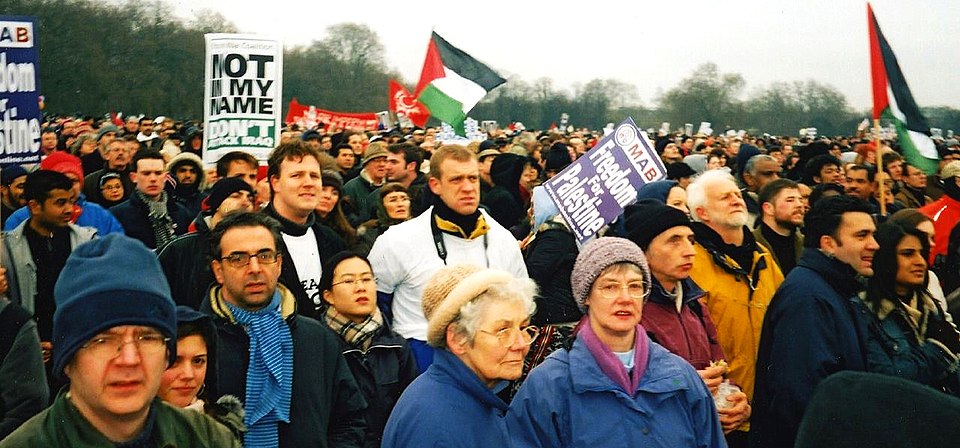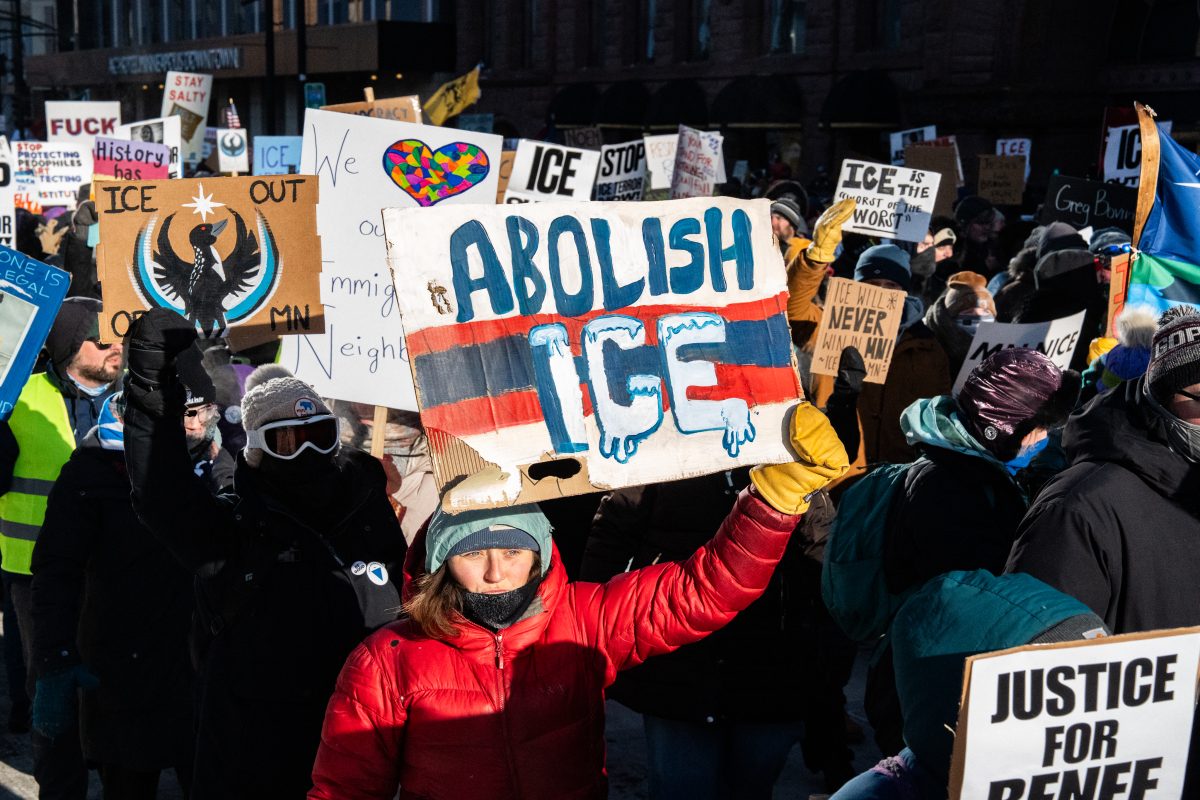I’ve been watching a lot of documentaries about climate change activists lately – it seems to be the latest trend, particularly in German cinema. They introduce us to a number of inspirational activists, who are serious about wanting to change the world. But most of these activists share the same political flaw – they see change coming from getting a seat at the table where government representatives talk about “blah, blah, blah”.
One of these films is Now in which young environmental activists are excited when the UN invites youth delegates to a session on climate change. Another is Dear Future Children in which Hilda from Uganda relishes her invitation to speak at the Copenhagen Climate Summit. It may be worth mentioning that the film’s other main characters, Rayen and Pepper are resisting police tear gas in Chile and Hong Kong respectively.
Let me be clear. These films – and others like them – are good, sometimes great, and offer a realistic view of the current state of the climate change movement. The trouble is that many activists appear to want to transcend the fact that the Great and the Good are ignoring their demonstrations by allowing themselves to be co-opted by the governments and big business who are the cause of the current environmental crisis.
And then there is Greta
Not so Greta Thunberg. For a few years, she has been following a strategy of both acknowledging that Climate Summits are happening and calling them out for what they are. Her recent intervention dismissing the “blah blah blah” of the COP26 summit in Glasgow is just the latest of a series of statements in which she speaks truth to power.
One note about style in this article. I am not going to refer to Greta as “Thunberg” like a dispassionate journalist. She is one of us, a comrade in arms. We may disagree on individual points of theory, but she is a passionate and courageous fighter. who is on our side. I’m going to call her Greta.
Let’s look at Greta’s record in the 3 years after she sat outside the Swedish parliament with her now famous “Skolstrejk för Klimatet” placard. In Katowice in 2018 at the COP24 summit, when Greta was still 15, she said “I don’t care about being popular. I care about climate justice and the living planet. Our civilisation is being sacrificed for the opportunity of a very small number of people to continue making enormous amounts of money.”
In January 2019, she tweeted “I was given the opportunity to speak at a lunch in Davos today… On the panel was Bono, Christiana Figueres, Jane Goodall, Will.i.am and Kengo Sakurada. #wef.” From “lunch in Davos” to “Bono” there are enough trigger warnings here for us to expect the worst. But here’s what she actually said in the video attached to the tweet:
“Some people, some companies, some decision makers in particular have known exactly what prices and values they have been sacrificing to continue making unimaginable money, and I think many of you here today belong to that group of people.”
In September 2019 at the UN climate action summit, Greta said: “We are at the beginning of a mass extinction and all you can talk about is the money and fairy tales of eternal economic growth. How dare you!” So, yes, Greta has attended climate summits, but never at the cost of her own silence. She has regularly and consistently called out the organisers of the summits for the inadequacy of their response. She has refused to help them pretend that everything is ok.
The run up to COP26
How did Greta react to the recent COP26 climate summit? In a speech at a Youth4Climate meeting in Milan before the summit started, Greta complained that “of course, we need constructive dialogue, but they’ve now had 30 years of blah blah blah and where has that led us? … They invite young people to meetings like this to pretend that they are listening to people. But they are not. They are clearly not listening to us. And they never have.”
Around the same time, she wrote in the Guardian: “The climate and ecological emergency is, of course, only a symptom of a much larger sustainability crisis. A social crisis. A crisis of inequality that dates back to colonialism and beyond. A crisis based on the idea that some people are worth more than others and, therefore have the right to exploit and steal other people’s land and resources … It’s naive to think that we could solve this crisis without confronting the roots of it.”
In an interview around the same time, she said “Nothing has changed from previous years really. The leaders will say we’ll do this and we’ll do this, and we will put our forces together and achieve this, and then they will do nothing. Maybe some symbolic things and creative accounting and things that don’t really have a big impact. We can have as many COPs as we want, but nothing real will come out of it.”
Greta’s attacks on the system have made her resistant to being co-opted by even the most liberal politician to greenwash what they have actually done in office. In the same interview, she was asked what she thought about New Zealand prime minister Jacinda Ardern speaking out about climate change being a matter of “life or death”.
Greta’s response was typical: “She looks sceptical. ‘It’s funny that people believe Jacinda Ardern and people like that are climate leaders. That just tells you how little people know about the climate crisis.’ Why? ‘Obviously the emissions haven’t fallen. It goes without saying that these people are not doing anything.’ In April, it was revealed that New Zealand’s greenhouse-gas emissions had increased by 2% in 2019.
Greta in Glasgow
Greta did not participate in COP26. A few months before the conference started, she made a statement saying: “Of course I would love to attend the Glasgow #COP26. But not unless everyone can take part on the same terms … Inequality and climate injustice is already the heart of the climate crisis.” The point became moot after Greta was not invited to attend. Instead, she attended a number of demonstrations and addressed the press on her own terms.
At a march in Glasgow, Greta said: “It is not a secret that COP26 is a failure” and addressed the culpability of world leaders: “The leaders are not doing nothing, they are actively creating loopholes and shaping frameworks to benefit themselves and to continue profiting from this destructive system. The COP has turned into a PR event.” Pointing at the crowd, she continued: “Our leaders are not leading. This is what leadership looks like”.
Also speaking in Glasgow was Barack Obama, who was hailed by many journalists when he told young people: “You are right to be frustrated. Folks in my generation have not done enough to deal with a potentially cataclysmic problem that you now stand to inherit.” Yet the solution that Obama offered was to “Vote like your life depends on it, because it does.”
But many climate change activists are disenfranchised because of their age. And let’s remind ourselves – Obama was US President for 8 years. During this time he told the audience at a gala for Rice University’s Baker Institute “I know we’re in oil country and we need American energy. You wouldn’t always know it ,but it went up every year I was president… Suddenly America is the largest oil producer. That was me people … say thank you.”
Greta’s continued interventions give a clear sign that Obama and Ardern’s greenwashing are clearly inadequate (and this is before we get to governments run by conservatives and climate change deniers). She has a different vision of where our strength lies. As long ago as 2018 she was arguing: “If solutions within this system are so difficult to find, then maybe we should change the system itself … The real power belongs to the people.”
There is a dialectical relationship between Greta’s appearances at demos and the climate change movement. Her appearances and statements help mobilise the demonstrations, and the main reason for the size of her public platform is the large movement behind her. But can this last forever?
Quo vadis Greta?
In the 1980s, long before they had an international hot single, the anarchist pop group Chumbawamba wrote a song, Ulrike, about Ulrike Meinhof, leading member of the Red Army Fraction (RAF, popularly known outside Germany as the Baader-Meinhof group). In the song, they asked: “Who wants to be a Green MP? I don′t”.
This is not the place for a detailed discussion of a 1970s ultra-left organisation, but briefly: the RAF tried to continue the mass movement of 1968, and retained a substantial amount of popular support (including from my CDU-voting German teacher). But as the active movement went down, they increasingly resorted to desperate acts of individual terrorism.
In the absence of a mass movement, prominent supporters of the RAF variously ended up as the SPD Interior Minister, a member of the Nazi NPD, and indeed a Green MP. The party leaders either committed suicide or were murdered by the State in Stammheim prison, depending on whose version of history you believe.
What has this to do with Greta Thunberg? The Guardian reporter Simon Hattenstone remarked “Career-wise she always tells Svante [her father] she’d love to do something that’s nothing to do with climate, because it would mean that the crisis has been averted. But they both know it’s a fantasy.” For the moment, at least, there seems to be little chance of Greta relinquishing her activism to become a Green MP or work for an NGO.
And yet we should still ask the question: what would happen to Greta if the climate change movement dies down? Another recent film Aufschrei der Jugend, about Fridays for Future Berlin, shows how the lack of obvious gains for the movement has led a number of activists to drift off into travelling the world or (shock, horror) finishing their studies. We can’t guarantee that the climate demonstrations can sustain their current size.
We could approach a fork in the road where Greta is forced to take a decision that she has not yet had to make: does she move to the right and allow herself to be co-opted or to the left and risk losing some of her support?
Appeal to workers
We recently saw a development in her politics when she invited striking workers to join her at the COP26 protests. Referring to ongoing strikes by Scottish rail and bin workers, she tweeted: “Climate justice also means social justice and that we leave no one behind. So we invite everyone, especially the workers striking in Glasgow, to join us. See you there! #UprootTheSystem @fff_glasgow”.
This is not just a vague intersectional attempt to bring different campaigns together. It was also an appeal to the climate movement to work with the people who do have the power to stop capitalism in its tracks.
Workers responded in kind. Refuse and Cleansing Convenor Chris Mitchell tweeted from the GMB account: “This is a message of thanks and solidarity to Greta Thunberg, who tweeted yesterday inviting every striking worker to rally in Kelvingrove Park on the 5th of November to march from there to George Square in solidarity for climate justice and social justice, where no one gets left behind.”
As James Plested argues in an article entitled Why Greta Thunberg is cooler than you:
“The other thing that makes Thunberg so cool is what she says about our side in the climate struggle. Unlike the leaders of the more mainstream currents of the environment movement, whose approach centres on mobilising people at best only as a kind of adjunct to the ‘real work’ of behind the scenes lobbying, Thunberg has again and again laid out a perspective for change that puts ‘people power’ front and centre.”
We don’t know where Greta will end up, but for the moment, her role in the climate movement is exemplary. But history is made by movements, not individuals. This is why it is essential that the whole of the climate change movement recognises who our allies are and who are our enemies. At the moment, we could do worse than listening to some of Greta’s speeches.




